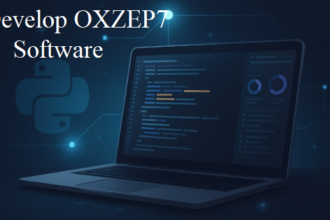Modern slavery remains a global issue and the UK is not exempt from its risks. Employers in all sectors may encounter hidden exploitation in their operations or supply chains. The Modern Slavery Act was introduced to combat this problem and place responsibility on organisations to take active steps to identify and prevent it. This guide explains the Act, who it applies to and the responsibilities employers must meet.
- What is the Modern Slavery Act?
- Who Does the Act Apply To?
- Employer Responsibilities Under the Act
- Penalties for Non-Compliance
- Practical Steps for Employers
- 1. Review Supply Chains
- 2. Develop a Slavery and Human Trafficking Policy
- 3. Conduct Regular Risk Assessments
- 4. Provide Staff Training
- 5. Publish a Transparency Statement
- A Safer Future: Staying Ahead of Modern Slavery Risks
What is the Modern Slavery Act?
The Modern Slavery Act 2015 is UK legislation designed to tackle slavery, servitude, forced labour and human trafficking. It brought together previous laws into one framework and created clearer obligations for organisations. The Act makes businesses accountable for identifying risks of modern slavery within their supply chains and operations. It also strengthens enforcement by giving authorities greater powers to prosecute offenders and protect victims.
Who Does the Act Apply To?
Not every business falls under the same legal obligations. The Act applies to commercial organisations operating in the UK with an annual turnover of £36 million or more. This includes private companies, partnerships and some public sector bodies. Even if an organisation is below this threshold, it may still face reputational risks if it fails to act responsibly. Smaller businesses supplying larger companies may also be required to demonstrate compliance to maintain contracts.
Employer Responsibilities Under the Act
Employers have several clear duties under the Act. These responsibilities are focused on improving transparency, reducing risk and raising awareness across organisations and supply chains.
Transparency in Supply Chains
A core requirement is the production of a slavery and human trafficking statement. Large organisations must publish this statement each financial year. It should outline the steps taken to identify and reduce risks of slavery and trafficking within supply chains. This statement must be approved by the board and made publicly accessible on the company website.
Due Diligence and Risk Assessment
Employers must have procedures in place to assess risk areas within their operations. High-risk suppliers, sectors or regions should be identified and monitored closely. Due diligence processes may include supplier audits, self-assessment questionnaires and independent checks. The aim is to prevent organisations from indirectly supporting practices that exploit workers.
Training and Awareness
Another responsibility is ensuring staff are equipped to recognise and respond to risks of modern slavery. Employers must provide clear training and guidance so employees understand the warning signs.
Human Focus Modern Slavery Training can help organisations meet this requirement and ensure staff take consistent action when risks are identified.
Penalties for Non-Compliance
Failure to meet obligations under the Act can result in both legal and reputational consequences. The government can apply for an injunction against non-compliant organisations. If the injunction is ignored, the organisation could face unlimited fines. Beyond legal risks, reputational damage can be significant. Consumers, investors and business partners expect responsible practices and may withdraw support if organisations fail to comply.
Practical Steps for Employers
Meeting the requirements of the Act is not only a legal duty but also a matter of ethical responsibility. Employers can take several practical steps to improve compliance and reduce risks. The following checklist provides a clear framework that can be adapted to different organisations.
1. Review Supply Chains
Employers should begin by mapping their supply chains in detail. This means identifying direct and indirect suppliers and highlighting those in higher-risk regions or industries. The more complex the supply chain, the greater the need for structured oversight.
2. Develop a Slavery and Human Trafficking Policy
A written policy sets out an organisation’s approach to preventing slavery and trafficking. It communicates clear expectations to employees, suppliers and contractors. The policy should include commitments to risk assessment, supplier monitoring and staff training.
3. Conduct Regular Risk Assessments
Risks must be monitored on an ongoing basis. Employers should schedule regular reviews of operations and supply chains. Assessments should be updated as new suppliers are added or business activities change. Independent audits can provide an extra level of assurance.
4. Provide Staff Training
Employers should ensure all staff understand how to recognise signs of forced labour and human trafficking. Training should be practical and role-specific. For example, procurement teams may need deeper knowledge of supply chain risks, while frontline staff should know how to report concerns. Consistent training ensures that policies translate into action.
5. Publish a Transparency Statement
Organisations that meet the turnover threshold must publish a slavery and human trafficking statement each year. The statement should be accessible on the company’s website and signed by senior leadership. It must set out the actions taken during the year to prevent all types of modern slavery and describe any future steps planned. Transparency statements also allow stakeholders to hold organisations accountable.
A Safer Future: Staying Ahead of Modern Slavery Risks
The Ongoing Nature of Compliance
Compliance is not a one-off task. Employers must treat modern slavery prevention as a continuous process. Risks change as supply chains expand, markets shift and new suppliers are added. Annual reviews and updated policies keep organisations ahead of legal requirements and ethical expectations.
The Role of Leadership
Leadership commitment is vital. When boards and senior managers set clear expectations, it creates a culture where modern slavery is not tolerated. Leaders must ensure policies are resourced properly and that staff feel empowered to act on concerns. Without top-level support, compliance measures risk becoming a box-ticking exercise.
Ethical Benefits Beyond Compliance
Taking modern slavery seriously has benefits beyond avoiding penalties. Organisations that demonstrate strong ethical standards often gain trust from clients, investors and employees. It can improve brand reputation and create competitive advantage. Addressing exploitation is not only about legal duty but also about building sustainable and responsible business practices.

















